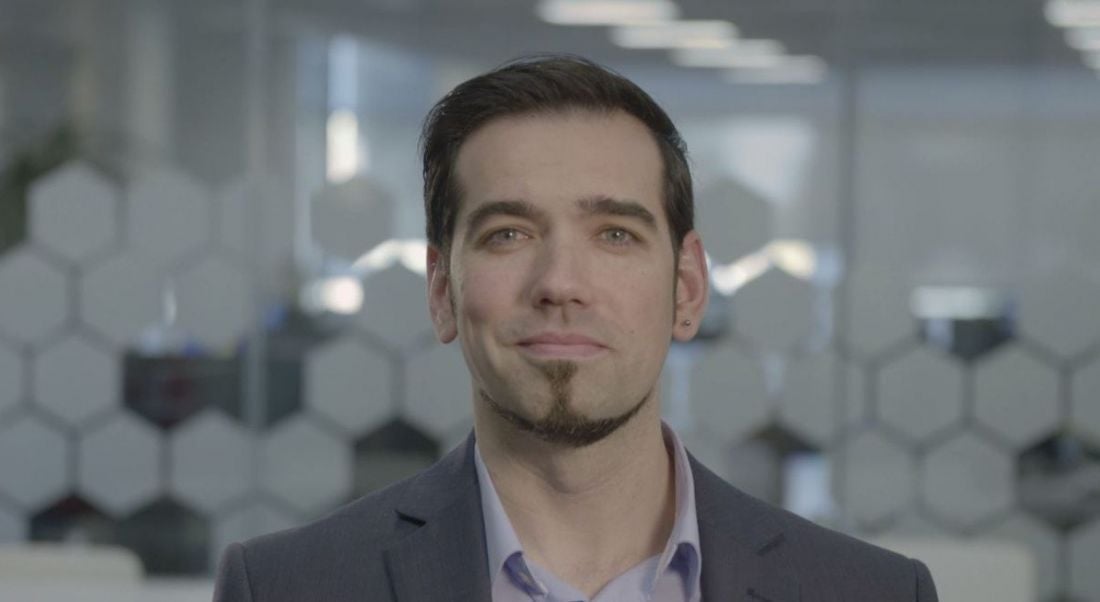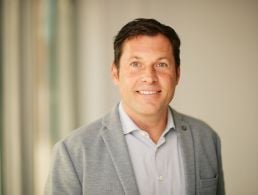Those hearing about the tech talent gap may be tempted to assume that once you gain qualifications in IT, you’re pretty much set. Cristian Varela, a senior data architect at ACIA, explains why those looking to progress can’t afford to sit on their laurels.
We talk about the tech talent gap often here in the Careers section. Engineering and IT professionals have some of the most sought-after skills in today’s market, and in turn can command lucrative salaries and perk-filled packages.
Given the high demand, it may be tempting to rest on one’s technical laurels. However, Cristian Varela, a senior data architect at the Aon Centre for Innovation and Analytics (ACIA), would recommend against that.
Varela sought a part-time IT job as an undergraduate so he could get some hands-on experience for his CV before leaving college. Here, we spoke to him about how he made his way up to the position he has today and his best advice for aspiring IT professionals on how to get a competitive edge and ensure you are constantly improving.
What first stirred your interest in a career in this area?
For as long as I remember, I’ve always had an interest in computers and technology. I got my first computer when I was seven years old as a present for getting good grades in school. I knew right then that I wanted to work with computers when I grew up.
What education and/or other jobs led you to the role you now have?
All my secondary education was focused at getting a place in university to study for a bachelor’s degree in computer science and I was very lucky to get it as it was one of the most in-demand degrees at the time.
After the first year full-time in university, I decided to look for IT-related part-time jobs in the mornings and to attend lectures in the afternoon/evening so I could get hands-on experience early and also funds to pay for the rest of the degree (and, of course, some much-needed pocket money for myself).
I did that for the next four years. It was very hard going but well worth it as I got to work as a developer in a couple of different companies and also as a system administrator. These jobs taught me a lot of IT skills but also gave me a very good indication on what sort of things I enjoyed doing in work.
Then, I took the best decision of my career when I applied to do my final degree project abroad and become an Erasmus student in Trinity College Dublin, which had an agreement with my home university. I cannot recommend this or similar programmes enough to anybody looking to improve their CV out of college.
What were the biggest surprises or challenges you encountered on your career path, and how did you deal with them?
The biggest surprise was the difference in opportunities and responsibilities, such as management roles given to young people by companies in Ireland, particularly in comparison to the roles I’ve held in Spain where more traditional perceptions and a much older society still get in the way of young aspirants. Also, the work-life balance culture that companies embrace is miles ahead here.
In terms of challenges, coming from a non-native-English-speaking country is always a hurdle to get a first good IT job, never mind getting used to the Irish accent, but there’s always need for other European languages in places like call centres, which can serve as a stop gap while learning the language to a job in the industry or career that you want. That’s what I did. I guess the same can be applied to Irish people going to places like Germany, France, Italy or Spain, to name a few.
Was there any one person who was particularly influential as your career developed?
Yes, not one but two. While working in Dell as a server support engineer many years ago, my manager at the time gave me an opportunity to build a data warehouse from scratch to support the business intelligence (BI) needs of the support centre. It meant a complete change of tack in my career by moving from the enterprise hardware and network support world to the BI industry. I fully embraced the opportunity and never looked back since.
With the support of that manager in Dell, I did that role for the best part of four years before I moved to Paddy Power as a data warehouse architect where, again, I had the opportunity to work with a great manager who supported me and coached for the next five years and helped me get where I am today.
They both have moved on from those companies since, as I have, but I’m still in contact regularly with them and ask for feedback and advice when I have to make important decisions or I face challenges.
What do you enjoy about your job?
As a data architect in a data-driven organisation, I have the privilege to see how all the pieces of the puzzle fit together. This big-picture view enables me to provide input early in the strategy of the company and therefore have a great impact. I also like testing data-related software and services to see if and how they can be leveraged to the company’s advantage.
What aspects of your personality do you feel make you suited to this job?
A big part of my role as a data architect is to formulate and endorse visions of technical solutions that align with the organisation’s strategic goals. If you’re not passionate about it, your solutions tend to reflect it by showing a distinct lack of innovation and aspiration to develop the capabilities of the organisation.
I’m very passionate about what I do and my career has always been directed by that passion. If I don’t feel it about a particular project or role, then I know it’s not the right path for me.
How did Aon support you on your career path, if at all?
In ACIA, we are riding at the front of the peloton of innovation, especially when it comes to developing analytics platforms and products using cloud technology.
Working in ACIA with such amazing talented people has enabled me to learn first-hand the advantages, challenges and practicalities of such technologies. Additionally, management is very aware of the dizzying pace at which the industry changes, and goes out of their way to ensure we as individuals don’t fall back by ensuring we attend key events in the tech conference calendar while hosting some events of our own.
What advice would you give to those considering a career in this area, or just starting out in one?
The first piece of advice I can give is a bit of a cliché but it’s served me very well over the years: never stop learning. In the IT world, this doesn’t mean to get all certifications that cross your path, but rather to experiment with different tech and programming languages.
The second one is to not to get too fixated in a specific career outcome. Have a short-term objective based on your current situation. While you work towards it, see what opportunities present themselves and take them because they might lead you to places and roles that you never considered or thought were possible.




